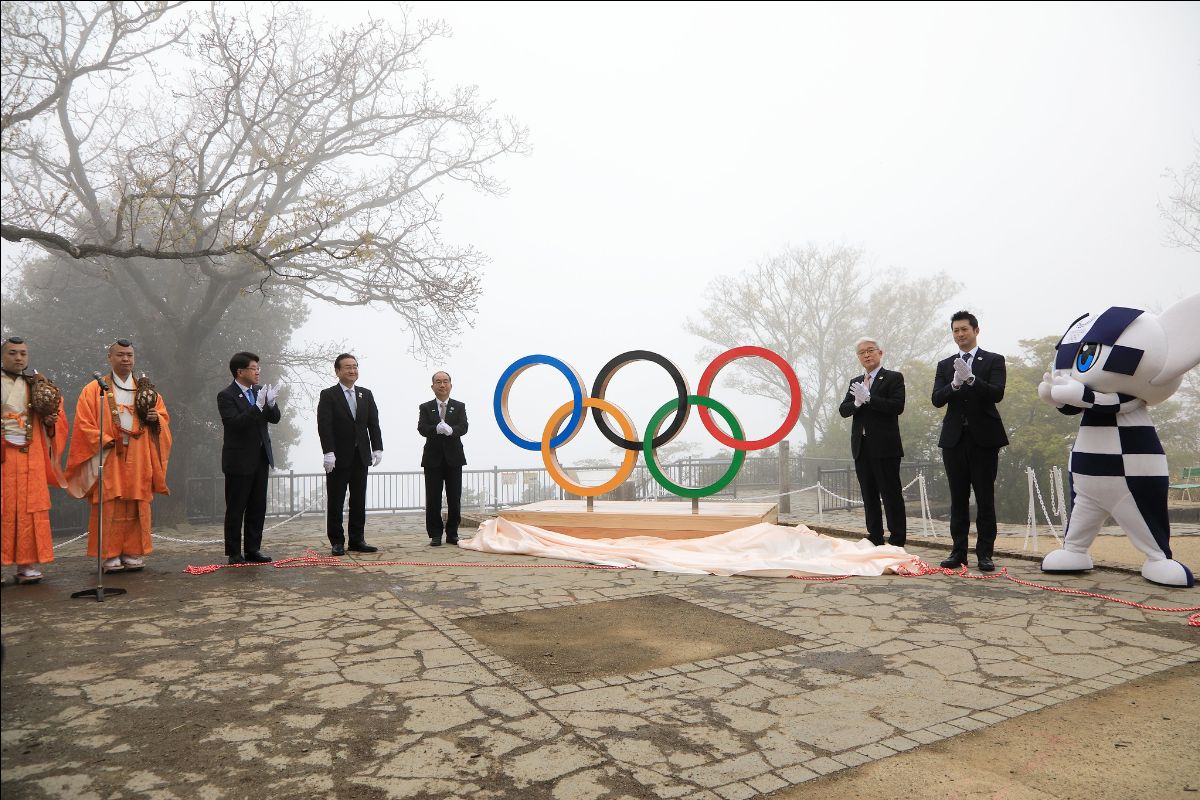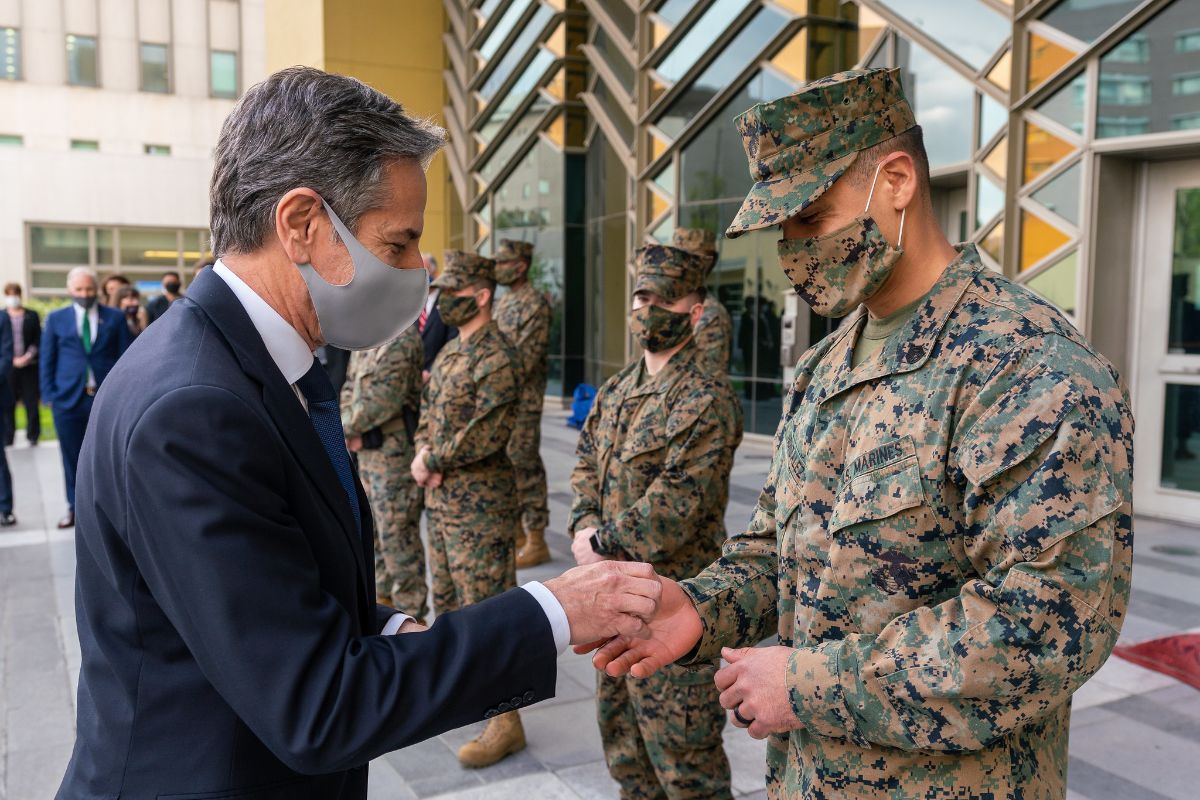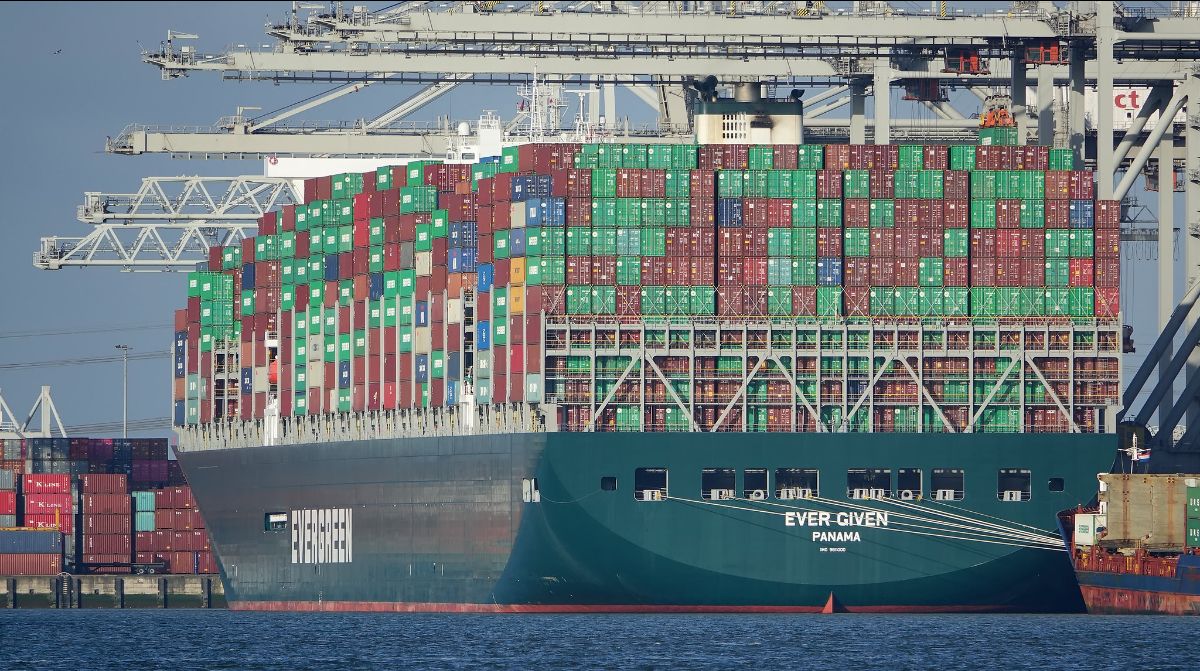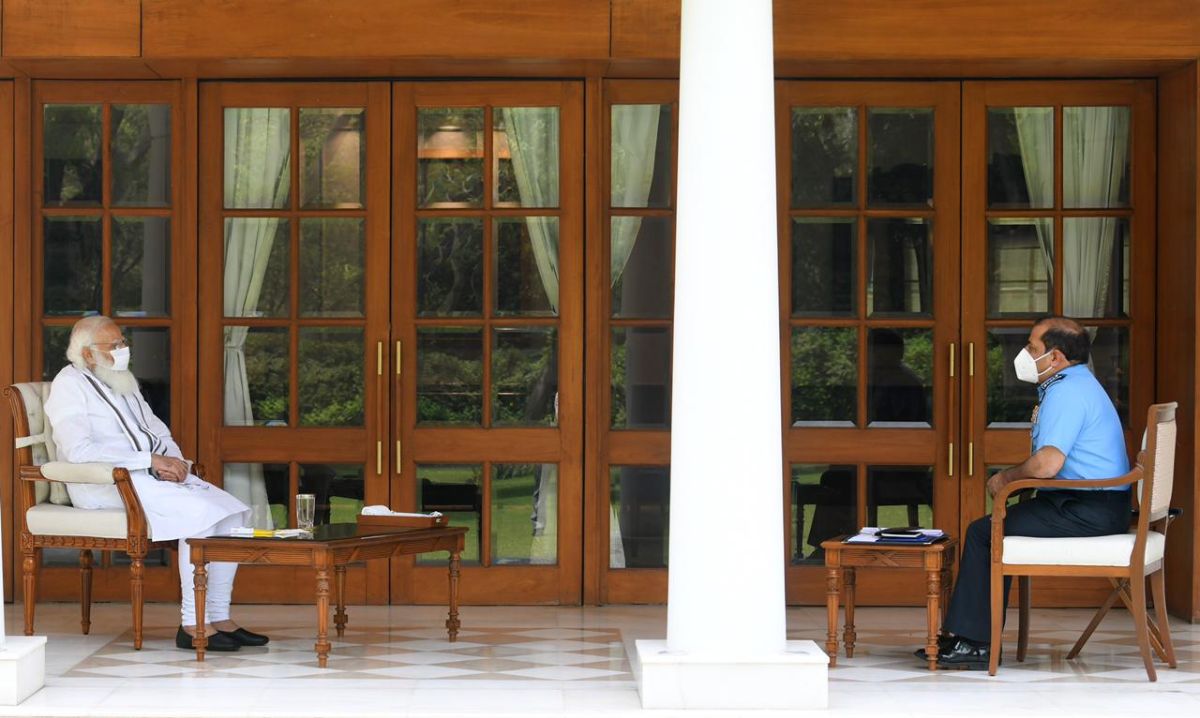Welcome to Factal Forecast, a look at the upcoming week’s biggest stories and what they mean from the editors at Factal. Published every Thursday, Forecast is a newsletter to help you get a jump-start on the week ahead. Get it in your email by subscribing for free.
A look ahead:
April 30/ WHO review of Moderna vaccine: Experts at the World Health Organization (WHO) will review Moderna’s coronavirus vaccine on Friday. The group will ultimately decide if the vaccine can receive its emergency-use listing, which would make it available globally at a faster rate.
- What’s happened so far: Pfizer, AstraZeneca and Johnson & Johnson’s coronavirus vaccines have already received WHO approval. Two Chinese coronavirus vaccines, Sinopharm and Sinovac, are also set to be reviewed by the WHO in early May.
- The impact: While Moderna’s vaccine is already in use in the United States and multiple other counties, other governments are waiting for WHO approval before distributing it. If the WHO signs off on emergency use, it could go a long way to get more vaccines to countries in desperate need. Moderna CEO Stephane Bancel said the company was on track to make up to 1 billion doses this year and 1.4 billion next year. A decision will likely come sometime between Saturday and Tuesday.

April 30/ Tokyo Olympics committee roundtable: The Tokyo Olympics organizing committee has scheduled a roundtable with medical experts to discuss coronavirus prevention measures Friday.
- What’s happened so far: With fewer than 100 days until the Olympics are scheduled to begin, Japan is dealing with an array of coronavirus-related challenges: rising case numbers, low vaccination rates and newly declared states of emergency in major metropolitan areas. The Olympic torch relay is already underway but has faced its own set of troubles, including athletes pulling out, detours and cancellations.
- The impact: Even as Japan struggles to control its coronavirus situation and public resistance to the event remains high, officials seem determined to press forward with the Olympics. Friday’s roundtable is unlikely to change that, but organizers are expected to continue unveiling more specific guidelines on how the games will be pulled off in the midst of a pandemic.

May 1/ China and North Korea resume cargo train service: Some rail trade is set to resume across the Yalu River on the China-North Korea border on Monday, according to a recent Reuters report.
- What’s happened so far: North Korea initially shut cross-border trade with China 15 months ago in the early stages of the coronavirus outbreak. While exact numbers are impossible to verify, North Korea claimed to have not had a single locally transmitted coronavirus case. However, the economic impacts of the border closure have been significant. With China representing roughly 95 percent of North Korea’s documented trade, the drastic decline in cross-border commerce has played a major role in a historic economic contraction for the north.
- The impact: A resumption of trade would go a long way toward helping to revitalize North Korea’s economy, a goal emphasized by leader Kim Jong-un at this year’s rare party congress. Perhaps most importantly, opening the border would dampen fears of a famine reminiscent of the 1990s with fertilizer and food imports again coming into the country. It is also worth watching how currency markets evolve after the resumption of commerce with China. After years of economic liberalization, Pyongyang cracked down on private commerce last year, which is typically done in North Korea in foreign currencies.

May 1/ U.S. begins removing troops from Afghanistan: U.S. forces will begin withdrawing from combat in Afghanistan starting Monday, with President Joe Biden promising to have removed all combat troops from America’s longest war by Sept. 11, 2021.
- What’s happened so far: The Taliban and the Trump administration initially struck an agreement last year to remove all U.S. combat troops by May 1, though the Biden administration pushed the withdrawal timeline back slightly, citing logistical issues with the quick turnaround. The delay also gave the White House time for one attempted gambit towards kickstarting intra-Afghan peace talks, though this never took off after the Taliban refused to participate.
- The impact: It’s unclear if the Taliban will resume attacking U.S. forces due to the violation of the May 1 withdrawal deadline. In anticipation, the United States is moving an aircraft carrier and multiple strategic bombers into the theater to deter and respond to attacks. Planners are also seeking an expeditious withdrawal more than a month before the Sept. 11 deadline to negate the risk. Dependent on U.S. logistical support, the remaining NATO and other international coalition forces are also expected to withdraw forces. As for Afghanistan’s future post-withdrawal, it remains to be seen whether Taliban attacks will continue to intensify or whether they will reach a power-sharing arrangement with the government.
May 3/ G7 meeting in London: Starting Monday, the United Kingdom will host the first in-person meeting of G7 foreign and developing ministers in two years.
- What’s happened so far: Since the last G7 meeting in April 2019 in France, the world has faced a pandemic that left more than 3 million people dead and forced countries to close borders, suspend businesses and embark in the biggest vaccination campaigns of a generation. On Monday, the group of largest advanced economies will meet despite travel restrictions. In addition to the G7 countries, U.K. Foreign Secretary Dominic Raab invited India, Australia, South Korea, South Africa and the Association of Southeast Asian Nations to join.
- The impact: The U.K. government has ensured strict coronavirus-secure measures will be in place, including daily testing. It is unclear at this point if Indian representatives still plan to attend the meeting in person given the worsening coronavirus outbreak, but the country could use the opportunity to try to secure more help tackling the crisis. The meeting comes one month before the G7 Summit in Cornwall, which will address shared challenges such as coronavirus and climate change.

May 4/ Suez Canal ship hearing: An Egyptian court is set to hear an appeal on Tuesday from the owner of the Ever Given, the containership that ran aground in the Suez Canal last month, against its ruling giving the waterway’s administrator the right to detain the vessel until it’s paid compensation.
- What’s happened so far: After dislodging the ship that blocked one of the world’s busiest marine traffic routes for six days, Egypt’s Suez Canal Authority (SCA) claimed it’s owed $916 million in compensation and seized the vessel with 25 crewmembers — all Indian nationals — until the sum is paid. The ship’s owner and insurer argue the claim is too high and unsupported, alleging it includes $300 million for a “salvage bonus” and a similar amount for “loss of reputation.” Suez Canal revenues have averaged about $5.4 billion annually over the past five years.
- The impact: Tension has escalated over the impounded ship, with the head of India’s seafarers union accusing SCA of holding the ship’s crew for “ransom,” a claim SCA has denied. The court appeal by Ever Given’s owner, Japan’s Shoei Kisen Kaaisha Ltd., seeks to overturn the initial ruling by outlining five alleged procedural violations. Meanwhile, the vessel’s insurer said its interests will continue to “negotiate in good faith with SCA to reach an amicable solution.” It’s unclear whether the company would have recourse internationally if its efforts in Egyptian courts fail.
May 4/ Snap elections in Madrid: Madrid’s regional government’s coronavirus response will be front and center as voters in one of Spain’s largest autonomous communities cast their ballots Tuesday.
- What’s happened so far: Incumbent Madrid President Isabel Diaz Ayuso called the election in March, ending what had been a tenuous coalition between her center-right People’s Party and the liberal Ciudadanos. Ayuso, who has headed the regional government since 2019, has been called a “lockdown skeptic,” for her resistance to close bars, restaurants and entertainment venues amid the coronavirus pandemic, in stark contrast to much of Europe. The run-up to the election has also been plagued by threats to several left-wing figures.
- The impact: The latest polling suggests Ayuso’s decision to call an election may pay off handsomely, with her party well ahead, while their coalition partner is likely to be shut out entirely. The far-right VOX stands to benefit as a potential new governing partner if the People’s Party falls short of an outright majority.
May 5/ UN report on Colombian forced disappearances: A UN committee is expected to deliver a report evaluating the situation of forced disappearances in Colombia on Wednesday.
- What’s happened so far: While the exact number of forced disappearances during Colombia’s conflict is unclear, at least one report recorded at least 63,630 missing people and humanitarian agencies claim the number is higher. Colombia has reported to the UN since 2012 on the matter, with the latest session earlier this month. Colombian officials said the country is actively fighting disappearances, but blamed drug cartels and guerrilla dissidents for the continuing problem. Successive Colombian governments have also been accused of enforced disappearances, with state agents reportedly committing more than 6,000 extrajudicial executions between 2002 and 2008 to pad the list of enemies killed in combat.
- The impact: Although the main goal of the upcoming UN report is to ensure Colombia is fulfilling its obligations under international convention, it’s unclear whether the country is being transparent on its reports — human rights groups claim former military commanders tried during the peace process are not being listed as forced disappearances. The UN will issue recommendations according to the latest reports, but it is unclear whether Colombia’s openly pro-conflict government will adhere to the guidelines.
May 6/ United Kingdom local elections: On Thursday, voters across the United Kingdom will head to the polls in thousands of local races, including the high-profile London mayoral race.
- What’s happened so far: In March 2020, the U.K. government postponed the elections scheduled for May 2020 by a year due to the coronavirus pandemic. The last round of U.K. local elections in 2019 saw the Liberal Democrats make large strides, gaining more than 700 seats, with the Conservative party losing more than 1,300 seats. In the London mayoral race, recent polls show incumbent Mayor Sadiq Khan has a significant lead over Shaun Bailey, the Tory candidate. Hartlepool will also elect a new member of parliament after Labour MP Mike Hill resigned in March over sexual harassment allegations.
- The impact: Local councillors hold great power to impose or relax coronavirus restrictions, which is currently the most important issue to voters. Municipalities will also be looking for a way to repair their finances, which could mean changes to the council taxes. The elections could bring Scottish independence back into the news as the Scottish National Party looks for a post-Brexit referendum.

What else matters:
India opens coronavirus vaccines to all adults: Indian citizens aged 18 or older will be eligible for the coronavirus vaccine beginning Saturday as the government opens the third phase of its inoculation campaign amid skyrocketing cases across the country. India recently recorded more than a million new cases in less than a week, with a nationwide total of at least 17 million cases and more than 200,000 deaths since the start of the pandemic. Currently, only health care and frontline workers or adults over 45 years old are eligible for jabs.
- Watch for: Despite initially rolling out one of the fastest inoculation drives in the world, it remains unclear whether India, the world’s second most populous country and the largest vaccine producer, has enough doses or is logistically able to meet the expanded demand. Several states even say they will postpone the start of phase three due to supply shortages. Beginning May 1, the central government plans to continue vaccinating those already eligible for free, and private providers will be able to charge and provide jabs to anyone over 18 years old. India has so far given doses of two approved vaccines: the AstraZeneca shot made in the country as Covishield and the locally produced Covaxin. Russia’s Sputnik V was also approved, with the first batch to arrive May 1. Due to supply shortages, the central government recently gave emergency approvals for vaccines approved in other countries, such as those made by Pfizer and Moderna. It has yet to give details, however, on whether those jabs will be procured.
Jerusalem unrest: Palestinians are clashing on a near-nightly basis with Israeli forces at Damascus Gate in East Jerusalem, after police briefly barricaded the area where they traditionally hold Ramadan gatherings. The unrest drew in far-right Israelis who marched chanting anti-Arab slogans and widened to multiple West Bank towns. Palestinian militants have also joined the conflict, launching dozens of rockets from the Gaza Strip toward Israeli territory, to which Israel responded with airstrikes and closure of fishing waters vital to the territory’s economy.
- Watch for: Despite Israel’s decision to remove the barricades in an apparent de-escalation attempt, violence continues to spread in the West Bank in the form of isolated retaliatory attacks by Palestinians and Israeli settlers on each other. Politically, Israel is mired in an impasse that risks triggering the nation’s fifth election in two years, while the Palestinians are facing the possibility of delaying their first election in 15 years because Israel has yet to agree for the vote to be held in Jerusalem. It all raises concerns of a potential return to direct armed confrontation in the seven-decade-old conflict.
Extended outlook: What’s on our radar in the coming weeks
April 29: NFL Draft begins
April 30: Disneyland in California set to open; WHO to review Moderna’s coronavirus vaccine; Tokyo 2020 committee holds roundtable on coronavirus
May 1: Special election for Texas’ 6th congressional district; U.S. begins removing troops from Afghanistan; China and North Korea reportedly resume cargo train service
May 3: G7 foreign and development ministers meeting in London
May 4: Snap elections in Madrid, Spain; hearing on Suez Canal ship
May 5: UN committee to deliver report about forced disappearances in Colombia
May 6: United Kingdom elections
May 13: Eid al-Fitr
May 16: Regional and municipal elections in Chile
May 22: Palestinian Legislative Council elections
May 25: Anniversary of death of George Floyd
May 26: Travel bubble between Hong Kong and Singapore scheduled to begin
May 29: UEFA Champions League Final
June 1: Special election for New Mexico’s 1st congressional district
